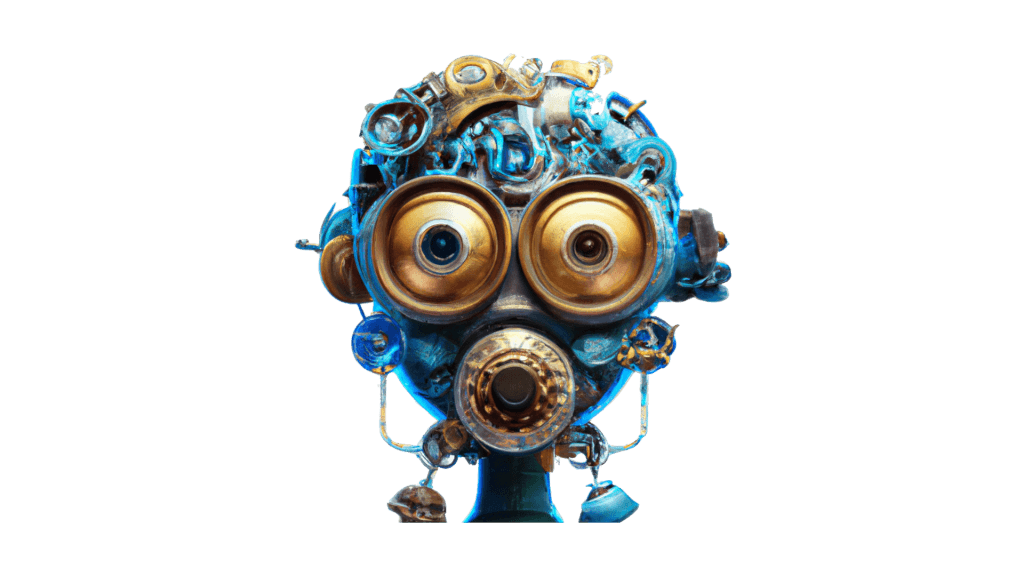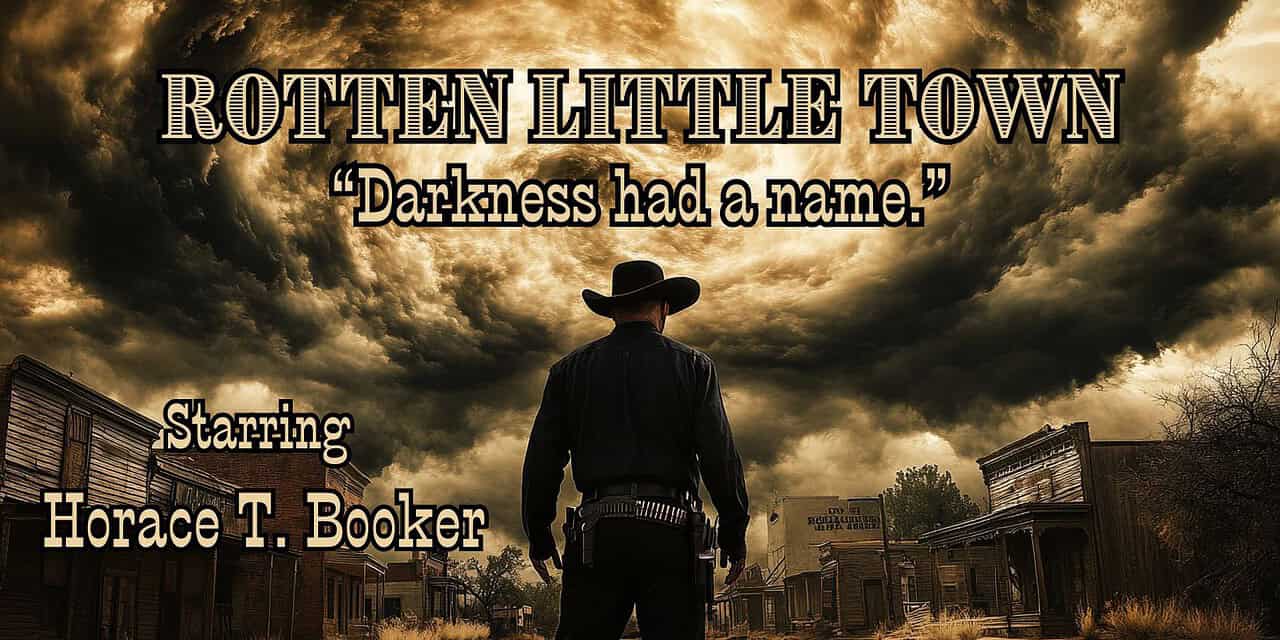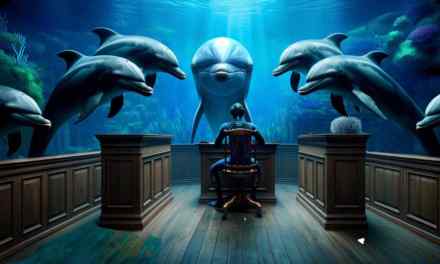It’s been over twenty years since the last episode of Rotten Little Town, the smash hit occult western that ran for six seasons between 1993 and 1999, plus one two-hour reunion movie released in 2000 that wrapped up most of the dangling storylines in such dramatic fashion that it remains highly debated today. Completing its planned arc despite the untimely deaths of one creator and two lead actors, plus multiple other mishaps, the show is still fondly remembered as the compelling story of Sheriff Horace T. Booker and his efforts to clean up the frontier town of Sawblade, New Mexico, which is beset by supernatural forces, at the height of the wild west. The creators and surviving cast members agreed to talk to us about how the show came to be, the rigors of filming, the show’s popularity and legacy, and the chances of a return to the town where, as the theme song put it, “Darkness had a name.”
The Early Days
JERRY STRACKER (Co-Creator): You must understand that in those days most episodic television did not have “arcs.” It had self-contained stories, that always returned the characters to status quo at the end of each hour-long episode. You could have series lasting seven, eight or nine years and nothing would change at all, unless there were kids who grew up on camera. I always wanted to do something more substantial, something that functioned as a novel for television. And I was still musing about how to do that when I mentioned it to [co-creator] Barth Lawrence, who told me that he’d been working on some ideas along that line, for a western series he then called Booker. He showed me what he had, and I fell on it with both hands, ripped it apart and put it back together before getting a pilot deal.
How much of his original vision made it to air?
JERRY STRACKER: Less than you’d think. Barth pretty much wanted to do a standard TV western about a troubled lawman holding his town together by sheer force of will, and of course, plenty of bullets. He just didn’t know how to sell any of the networks a western in that day and age. I mean, that was the era of Dances With Wolves and Unforgiven, but the genre was still considered pretty much dead, and though it was his dream project, he had no idea how to make it work. I was the one who said, but what if we add the supernatural? What if we took Booker’s arch enemy, the bad man Hogarth Malloy, and put him in league with the actual devil? Do that, I said, and we can give you six years’ worth of episodes, a story that built from year to year. He was ecstatic.
He was said to hate horror fiction.
JERRY STRACKER: Yes, he was resistant at first, but then I showed him how adding this one fantasy element could turn the whole show into a great morality play. Honestly, he came around to loving it.
We have a letter showing that he tried to get you fired off the development team, ten days before the car accident.
JERRY STRACKER: Barth was like that. He would try to fire you one minute, then be your brother five minutes later. It made him difficult to work with. The backers called us in and he talked about the purity of his original vision and I talked about how I had made it better, and they said that if I was dropped from the project they would have to drop him, too. Honestly, it was that obvious. But after we left the room, we had a great dinner and came to terms. We were, he admitted, making two shows in one, a western and a supernatural thriller, and if he stuck to his wheelhouse and made sure everything was authentic on the western end, he could do a bunch of episodes every year where the arc was in the background, and his more realistic take was more prominent; I would do the balance, the supernatural end, and I think he saw that I just wanted what was best for the show.
How did you take it when he died?
JERRY STRACKER: Well, first, of course, he disappeared, and that was worrisome, because he was so unstable, and we were all afraid that he’d done something foolish. He’d had his problems with drugs, you know. When the car was found, upside-down in that ditch, we were all stunned and heartbroken. He was a genius, even if he did have a vision for the show that was not quite in line with my own. Do you know that he drowned in six inches of water? Horrifying. I think about him every day.
Didn’t he scratch the word “Murder” on the upholstery?
JERRY STRACKER: That came many years later from an investigator trying to sell a book, and I don’t believe a word of it.
It’s a sensitive question, but how much of his original vision remained in the show bible?
JERRY STRACKER: Almost none. Our protagonist kept his name, but otherwise became a completely different person. The town changed, the tone changed, the arc changed, almost all of his characters were thrown out and replaced with my own—honestly, his spirit is all over the show, I think, and we were sufficiently sentimental about him to put a couple of his stories in season one, but otherwise, it’s largely the work of me and other writers in the stable. It’s a very different show than he wanted, at the onset, but I think he would have approved. I insist on it.
The Pilot Movie
Following the death of its original creator, Rotten Little Town went to pilot, using a script credited to both Stracker and Lawrence. It was the only time Sheriff Horace T. Booker was played by an actor other than Elliot James, who would go on to achieve stardom in the part. We reached out to original Booker, Cliff Adams, at the Actors Retirement Home in Los Angeles.
CLIFF ADAMS (original actor, “Sheriff Horace T. Booker”): It was such a long time ago that I don’t remember the story at all. I didn’t think it was any better or worse than anything else I’d worked on at the time, and I sure as hell didn’t expect it to go to series.
JERRY STRACKER: Cliff was everything we were hoping for at the time: an older, iconic actor known for westerns, all attributes that were pretty thin on the ground in those days. Bruce Dern had said no, and so had Sam Elliott, and we just kind of fell on Adams, who embodied the milieu even if he’d always been a supporting player. At the time we thought we’d struck gold.
CLIFF ADAMS: How long did that thing last, ten years? Eight? Crap, I would have hated that. TV hours were already a bit rough on me at that age. I wasn’t exactly a workaholic.
JERRY STRACKER: Let’s just say that he needed excessive hand-holding.
ARLENE MOLINEAUX (actor, “Kitty Parsons”): The man was a legend—or so I thought, from the perspective of a twenty-three-year-old actress who’d just been handed her first big break—but he wasn’t . . . (pause) He didn’t exactly understand the premise. He kept saying that the show would be a lot better if we just got rid of all the supernatural hugger-mugger. He used that phrase. “Hugger-mugger.”
BUDDY SAMS (actor, “Toby Samson”): That’s right! “Hugger-mugger!” In four days, I was already sick as shit of him saying that! Stracker finally had it out with him and said, “Look, if you want that show, you go somewhere else and find somebody to pay you for it. I hired you to be in THIS show!” And it didn’t help that there were some nervous types from the network hanging around who agreed with him. For the first two years, until the ratings went through the roof, they just kept circling Jerry and tried to force him into making the show Bonanza. He didn’t need some old guy in front of camera making the struggle more difficult.
CLIFF ADAMS: About the one thing I really do remember is that nobody had any respect for all my decades in the business. When I came up, no script was ever really final. The actors were able to adjust the dialogue to fit their own interpretation of the character, and that guy, Stracker, treated his words like they were, I don’t know, Shakespeare. Not a word could be changed.
JERRY STRACKER: He said that? Bullshit. Lots of the actors improvised great bits on the show. They just didn’t betray the show. He objected to a moment when the sheriff was permitted to freeze up with fear, saying that the hero isn’t supposed to do that. I told him he was playing a protagonist, not a hero, and he asked me if that was one of those fancy-pants New York words. (pause) I guess I just outed him as bigot.
BUDDY SAMS: He basically confirmed everything anybody ever warned me about old white guys. Didn’t like having a black man play his deputy. Said that weren’t black lawmen at that time. I showed him a book about Bass Reeves. You know, that guy was the basis of The Lone Ranger. I was the one who talked Jerry into giving Reeves a cameo.
JERRY STRACKER: He spoke the lines, though. And eventually gave a great performance. I’ll give him that. He acted the hell out of the part. He was gold on screen. Which meant . . . I would be stuck with him for the series. But I could have made that work.
CLIFF ADAMS: I didn’t want the series. Not if they were going to keep that supernatural hugger-mugger.
ARLENE MOLINEAUX: If he’d done the show I would have walked. I would have had to. There were . . . backstage behaviors. The kind of thing people talk about a lot more, today. Back then, if a woman wanted a career, she didn’t talk about that kind of thing. Poor Honey Pendrake (“Jeannie Armbruster,” Seasons 1-5) and I used to regale each other with stories about our narrow escapes from that guy.
CLIFF ADAMS: She’s lying. And dragging in Honey Pendrake, who isn’t alive and able to testify, that’s dirty pool.
ARLENE MOLINEAUX: The network wanted him.
JERRY STRACKER: I was faced with a serious problem. My lead actress wanted to go, my second male lead wanted to go, Adams would only take the show if I was forced to go. He would have installed some empty chair as showrunner and it would have been two seasons of Perfect Old Sheriff, every problem resolved with a gunfight in act four. I thought it was going to be one of TV’s many abortions.
ARLENE MOLINEAUX: Then he dropped out, and I don’t think he ever worked again.
CLIFF ADAMS: I guess they all think they got lucky, considering how popular the next guy was. (shrugs) It was between doing the show and fighting the cancer, and it turns out I had to fight the cancer longer than the show even ran. When I lost the leg, it was the end of the line for me. I did some gigs as narrator, and some audiobook narrations, but pretty much, I was done. Shame, though. What the show could have been, if they’d only listened to me.
Cliff Adams was interviewed three weeks before his fatal accidental overdose.
The First Season
Struggles with the network were not over, but with the pilot in hand, Stracker was able to get one of the actors on his original wish list for the character: grizzled veteran Mack Fortis, who, aside from bringing his own unique perspective to the role, was able to provide a smooth transition to his own characterization. Fortis, still a busy player in his late eighties, remembers fondly.
MACK FORTIS (“Sheriff Horace T. Booker,” Seasons 1-6): When I found out I’d be replacing Cliff Adams, I almost turned the role down. I thought I was being hired for the wrong reason.
JERRY STRACKER: There is a very slight resemblance that could fool you in a dark room. It was helpful when we had to decide whether to retain the pilot. But there’s absolutely no doubt that he made the role his, and more importantly, he got the feel we were going for. Even his prison record was a plus: he carried himself, on screen, like a man who had known violence, and could dispense it when necessary. But on set, he was a consummate professional.
MACK FORTIS: I don’t shit where I eat.
ARLENE MOLINEAUX: He left us girls alone.
MACK FORTIS: I was half in love with a couple of ’em, but I don’t shit where I eat.
WALLACE STEIN (“Doc Ferringer,” Seasons 1-5): The man understood that the sheriff was supposed to be almost as chilling, every time he had to prove how deadly he was, as even the most murderous bad guy—a killer constantly in danger of going over the line.
CORLISS HANSEN (“Hogarth Malloy”): I hadn’t ever seen him in anything else, and if I don’t get in trouble for saying it, still haven’t. You would think that by now I would have run into some old appearance of his, and I from time to time look up his IMDB listing to make sure I’m not going crazy, but I’ve never heard of any of that stuff, or anything he’s done since. But he was fuckin’ amazing to work with. Nasty old Hogarth would show up every five episodes or so, just to look sinister, and in half of them I had to go nose-to-nose with Mack, and I’ve got to tell you, whenever he told me I was on his list, I almost lost my water. He was scary. Barely human, it felt like. I always wondered why they didn’t just cast him in my part, when he was that good at being bad; but the answer’s that he’d turn around in the more peaceful scenes and be one charming son of a bitch.
WALLACE STEIN: Let me tell you something about Mack. We had this network liaison. I won’t say his name because I have nothing good to say about him, but he was one member of what Jerry called the “Mundane Mob,” the group dedicated to eliminating every element that made the show unique. When he saw the script for, what was the episode’s name, the one about the lone rider who could point his finger at people and make them fall down dead—
JERRY STRACKER: “The Hand of Death.”
WALLACE STEIN: Yeah, that one, the one that really got us noticed, and people on the street have been shooting me with index finger-pistols ever since. Anyway, this guy said we couldn’t do that, because it was too violent. Imagine, a show where people shoot each other with real guns every day, and he thought pointing a finger was too violent! Anyway, that guy insisted on this script being shelved, and it seemed that Jerry had used up all his leverage for that particular season, because it was, even if that meant shuffling the arc stuff around. But the fight over this particular episode went on until the guy’s backyard deck collapsed, right over the canyon it overlooked, killing him and two of his children. Mack had been as mad at him as anybody, but he spoke at the guy’s funeral and it was like they’d been best friends for life. Not a dry eye in the house.
MACK FORTISS: Yeah, people actually mourned that piece of crap.
JERRY STRACKER: We ended up dedicating the episode to the guy. I guess you could see that as a nasty little in-joke, but we didn’t see it that way. I mean, it was just a creative disagreement. We would have worked it out.
Season Two
Rotten Little Town ended season one with only mediocre ratings and ended that run on the cancellation bubble. Everybody thought the show was doomed, but then it received a last-minute reprieve, and the cast, some of whom had already gone on to other things, were called back.
JERRY STRACKER: The network would just plug in another show in the Special Investigation Unit franchise, which was already in the top twenty with the versions that ran on Tuesday and Thursday. I said to them, “Why not just do one every night of the week? Then you won’t ever have to run any show that’s even the slightest bit different!” But they had a good thing going, and knew it, and so it looked like our little show would just have to make way for another spin-off, Special Investigations Unit: Hawaii. . .
INGRID WINER (Writer, Seasons 1-4): Networks historically love setting shows in Hawaii. The weather’s great, the scenery’s terrific, and actors love getting cast in shows that are filmed there. Who doesn’t want to be in the cast of a show set in Hawaii? The second they said the name of our replacement, I knew we were toast. But that was before Gerry Simpson got into trouble.
WALLACE STEIN: Second biggest Simpson scandal of the decade, folks.
INGRID WINER: Mr. “Track down and arrest the bastards” himself, the man who had made a fortune out of good cops punishing evil, having all that child porn in his home. Sounded like one of the villains on his show, saying he had no idea how it got there.
BUDDY SAMS: I hear he was passed around like a party favor in prison, and it couldn’t have happened to a nicer piece of shit.
WALLACE STEIN: The point is that all of a sudden, the network had to fill that hour again!
JERRY STRACKER: The biggest problem was putting our cast back together. Mack had accepted a movie offer which would cut into our filming schedule, but getting him back in the fold was just a matter of changing the schedule, and filming our scenes three weeks in. Wallace hadn’t hit the ground running and was still looking for work, so he was happy. Arlene had to fly back from London, where she was rehearsing for a show.
ARLENE MOLINEAUX: It was just one of those things. We were two days from our first tryouts when the producers suddenly soured on it. I didn’t know why. All I knew was that it was my first stage role and that people said it would make me an A-list star, and that all this money was being spent on it, and that it all just popped and no one had any explanation. I was nearly out of my mind. But then the call from Jerry came in, that very same day. One door opens, another closes.
CORLISS HANSEN: I’d lost a big role myself, on Life or Death. Yeah, I would have been Dr. Benjamin Lancer, himself! I might have been where the guy who inherited the part is now, a fuckin’ living legend! But in the early part of that summer, the railing on my front stairs came loose, and I spent the next couple of months in a cast. Was just coming out of the cast when Jerry called about the second season being a go, so in I was.
BUDDY SAMS: It was one of those cases like Casablanca where everything went right, and all these people who never expected much went into season two, thinking that we’d just signed on for no more than another year of a show that would limp along for another twenty-two episodes and then get forgotten forever. (pause). We didn’t know that Jerry had an ace up his sleeve.
JERRY STRACKER: I knew that if the show was to find its audience, I needed a star to pull them in, if only for one season. And I got one.
The Coming of Tom De Lance
Generally, stars as big as Tom De Lance do not do episodic television until their careers begin to slip. By and large they don’t even look at the scripts. But in late 1994, Tom De Lance was coming off his second Best Actor win and enjoying the box office lead of his latest film, Troublemaker, which would go on to spawn four sequels. He got to make them, but first he surprised everybody by agreeing to join the second season of Rotten Little Town in second lead. We met up with him on the set of his latest blockbuster, Savage Eyes, set for release this November.
TOM DE LANCE (“Marshall Jack Hardeman,” Season 2): What did they say in The Godfather? They gave me an offer I could not refuse.
JERRY STRACKER: It was a case of building the character for him.
TOM DE LANCE: It was a good character, a compelling, conflicted lawman who would gradually give into darkness over the course of the season. But there were a good dozen veteran players, and God alone knows how many unknowns who could have acted the hell out of that role. And going back to television at that point of my career felt a lot like retreating. Jerry just . . . .(long pause) explained to me why I should do it.
JERRY STRACKER: I just told him that if he played this part it would be one of his most beloved roles for all time.
TOM DE LANCE: He said that? Okay, let’s go with that.
JERRY STRACKER: Just the announcement itself gave us a huge ratings boost. In terms of the story, it was helpful to create an upstanding, admired leader of men at the center of everything, who would seem to be the main character . . . and then to have him falter, and betray everything, and fail, and die at Hogarth Malloy’s hands.
ARLENE MOLINEAUX: By the end of that season, everybody at home wanted to see Sheriff Booker nail that murderous son of a bitch.
BUDDY SAMS: We got tons of angry letters. Nobody really thought Jack Hardeman would die. They always thought he would pull off a brilliant escape at the last minute. But then came the finale, and wow. He was like the Ned Stark of our generation.
TOM DE LANCE: Everybody keeps saying that I gave the performance of my career. Maybe I did. I know that I don’t see it. I try not to look at those old episodes, and I certainly don’t go to any of the goddamned conventions, but I do run into scenes from the show from time to time, and what I see is not an actor giving a performance, but a man under tremendous stress barely holding himself together. They didn’t need special lighting for the sweat to pop. It was . . . well, not necessarily because of the work schedule alone, a tough year. Maybe the worst year of my life.
Is there a reason you didn’t show up to collect your Emmy?
TOM DE LANCE: I didn’t want the damn thing in my house.
Why?
TOM DE LANCE: (Long pause) It’s been many years. Let’s skip it.
BUDDY SAMS: Tom has a long history of being a dick to people who were on the show. People go up and say hi to him, he calls them names. I think he’s just such a big marquee name, that he doesn’t like to be reminded that he put his superstardom on hold for a year, just because some then-marginal TV show gave him a call. It doesn’t seem to have hurt him long-term. And if nothing else, it got his daughter her first acting job!
JERRY STRACKER: I have nothing against the man. He helped turn us around in the ratings at a very difficult time in his life—we didn’t know how difficult—and we both got what we wanted out of the association. As long as he doesn’t tell any tales out of school, I won’t either.
MACK FORTISS: Yeah, I know the whole story. But I don’t think about it much.
Third Season: The Coming of Angelica Delacroix
ANGELICA DELACROIX (“Melinda Harker,” seasons 3-7): Look, everybody knows what happened to me the year before I cast. I was snatched out of my home and locked in some maniac’s basement room, and no, I don’t understand what he was after. I was lucky he wasn’t some killer or rapist; just a collector, I guess. I almost went insane. Then, I guess he thought better of it, because he doped me up and dropped me off at some emergency room. Some people still think I made the whole thing up as a publicity stunt, and I said, “Sure, you think that makes sense, you put your life and career on hold and go hide out for a year.” I moved back in with my Dad and was about thirty seconds away from picking some dangerous narcotic to get addicted to. I certainly didn’t know if I wanted to go back to acting, especially since I’d had plenty of time to think about why this was happening to me and I couldn’t think of anything but being the daughter of a celebrity. Who wants an extra chance at fame when you’ve been through something like that? But if I didn’t want to spend the rest of my life as a terrorized shut-in, I had to pick up the pieces, So I finally called my agent to tell her that I was ready to go back to work. That’s when I found out that Jerry Stracker had been looking for me.
JERRY STRACKER: Back then, nobody knew about her ordeal. Tom had kept it a secret all that time. The story didn’t come out until ten years later, when Angelica wrote her memoir. When I think about how stressed he’d been, on the set, and how he cut off connection with all of us after the season was done—well, it didn’t make any sense at the time, but ever since then, I can think of nothing more horrifying than having to pretend everything was normal when some evil shit had gotten his paws on my child.
TOM DE LANCE: “Some evil shit” is about right.
JERRY STRACKER: And of course, the people responsible have never been caught and are supposed to be still at large. It’s got to be terrible, knowing that they could decide to go after his daughter again, at any time, if it ever occurred to them that they wanted to. Even if he had a clue who they were, and identified them, he could never be certain that there weren’t accomplices still out there, prepared for reprisals if the ringleaders got caught. I, personally, would never feel safe. The thing he needs to keep in mind is that he gave them whatever they wanted, and they lived up to their end of the bargain.
TOM DE LANCE: No, I’m not going to tell you what the ransom was.
JERRY STRACKER: I don’t have any more of a clue than anyone else.
TOM DE LANCE: I don’t think it will ever be over, not in this head, and not in my daughter’s. (pause) When I heard that the show cast her as this new continuing character . . . (trails off)
Why did you hold up casting Melinda until Angelica became available?
JERRY STRACKER: She’d auditioned for the original pilot movie and I’d never forgotten her. I wrote the part for her. If I’d known what she was going through, I might have gone ahead and cast someone else, but I’m glad I waited.
TOM DE LANCE: It sure was lucky for him that he knew exactly how long to wait.
JERRY STRACKER: Tom’s family now, and he still has a bug up his ass where I’m concerned.
ANGELICA DELACROIX: My father had always been supportive of my career, and he certainly liked that I was putting myself back together after a year in captivity, but he and Jerry just never got along. At the time, I hated that he would even think of standing in my way!
TOM DE LANCE: She didn’t talk to me for two years.
JERRY STRACKER: I finally found out that all this was going on and called him up. I said, look, everything between us aside, this was her shot, and he was wrong to try to interfere with it. But I wanted to fix our broken relationship and I said, look, if it’ll smooth things over, I’ll just kill her off.
TOM DE LANCE: He would have done it, too.
ANGELICA DELACROIX: First I’m hearing of that, and it doesn’t make me happy with Jerry. I’m not some appendage of my father, who needs his permission for everything. I’m an actress in my own right. (pause). But of course, he probably just said it as a joke.
TOM DE LANCE: I would like to point out one thing to anybody who loves that damn show: even if you think it’s good, it ain’t exactly a laugh-riot. There are no jokes in it at all. That’s because Jerry Stracker has no sense of humor at all. If there any jokes in any episode, they belong to Ingrid or one of the other writers.
ANGELICA DELACROIX: Melinda was, more than Jerry ever could have guessed, the right character for me to play at that point in time: a privileged, but broken woman, coming off a nightmarish past that had come very close to breaking her but had instead made her stronger . . . can you imagine what it was like for me, coming out of a year locked in a basement room without seeing the sun, to channel those experiences into something strong? I told Dad that the show had kept me from falling apart, and that the cast and crew had made it possible for me to trust people again. I told him that if he wanted us to have a relationship in the future, he should stop trying to disturb that. And then I told him, of course, that Jerry and I were having a baby.
JERRY STRACKER: (smiling) We weren’t in love. We agreed on that. But it was a late night, on the set, and despite what they say about producers and actresses . . .
ANGELICA DELACROIX: (laughing) He was always worried about the way it looked! All those years before the Me Too movement! But it was mutual, believe me. I’ve got a damn fine husband now, my second, but I will say this about Jerry: he’s always been a good father to Peter. Had him half the year. Made sure to send Dad pictures of the times they spend together. All those wilderness hikes, river expeditions, deep-sea fishing trips . . .
JERRY STRACKER: Including now. Because whenever he’s home from college he works at my production company.
ANGELICA DELACROIX: You can’t peel the two apart.
JERRY STRACKER: Peter is the light of my life.
ANGELICA DELACROIX: As for me, I know prospective parents shouldn’t have babies as self-therapy, but for somebody who had been through all that horror, it was tremendously freeing to be able to look at such a trusting little face and say, “I will never allow any harm to come to you.”
JERRY STRACKER: I’m sure Tom feels the same way.
TOM DE LANCE: (long pause) . . . someone once told me that when you have children, you’ve given hostages to fortune. (another) And that, I guess, has been the story of my life. Protecting my hostages.
Season Four: Corliss Hansen’s Reign of Terror
With the cast all in place and the show now the top-ten hit it was always destined to be, Jerry Stracker saw that it was time for the main villain to show how dangerous he could be. Season Four therefore contained all the most frightening episodes, mostly written by Stracker: “Night in Desolation,” “The Plains Ripper,” and “Devil’s Bargain.” Ironically, it was Ingrid Winer’s “Schoolteacher’s Song” that ended up winning the Emmy.
BUDDY SAMS: Yeah, that was one ruthless-ass year, wasn’t it? Just when you thought the show had gotten as dark as it was ever going to, the writers would come up with something even more evil for Hogarth Malloy to do!
CORLISS HANSEN: I more than once had to tell angry people in supermarkets that I was just an actor, and that when I went home at night my wife and kids were waiting. Believe me when I said I almost quit the show to spend more time with them.
ARLENE MOLINEAUX: It was a rough year for many of us. Buddy had some growing substance-abuse problems, Corliss had a scare involving his kids—they had really only gotten delayed on the way back from school, but it was quite a scare there for a few hours! Wally’s pregnant wife had a bad fall and lost the baby . . . honestly, it wasn’t easy to return our focus to the show, but Jerry kept us in line. And the scripts were better than ever!
INGRID WINER: At the time I wrote “Schoolteacher’s Song,” there hadn’t been an important viewpoint character added to the show since season two. All the characters had been profoundly touched by the evils they dealt with every day, the threats they all lived under, and it occurred to me that it was time to remind the viewers just how sick, how abnormal all of this was. So I brought in this sweet young thing schoolteacher, who in short order witnessed just what hellish compromises all the characters had made, with their morality and their sanity, just to go on living in this town where they were all being manipulated by ruthless puppet masters. (Pause) Of course, my original ending had her get away intact.
CORLISS HANSEN: I have to tell you, the original act four just sat there like a dry turd. The girl just says, “I don’t have to be part of all this evil, I can go anywhere.” And she rides out on the noon stage and the big last scene is just all the characters kind of just standing there in the middle of the street talking about how she had been such a breath of fresh air and how strange it was that she decided to leave.
BUDDY SAMS: My pals who worked on various incarnations of Star Trek said that she sounds an awful lot like Ingrid’s “Mary Sue,” whatever that means.
INGRID WINER: The point of that original ending was that all the horror they had already experienced in their lives had twisted them so that they didn’t know what an unbiased outsider would see.
JERRY STRACKER: It wasn’t enough of a jolt for our show, not for that point in the run. I thought, just how scary can the town of Sawblade be, if a nice lady like that could just get a noon stage and go on to live an ordinary life somewhere else? So I changed the ending. Kind of completed Ingrid’s metaphor.
CORLISS HANSEN: What happened in the version as aired is that she takes her leave at the end of the second act. The third act is all her arriving in her new home in San Francisco, getting a new job, meeting a new man who’s crazy about her, and thinking herself fated for happiness. All the things you want to see for that character, right? But then she wakes up in the middle of the night, alone in her little apartment . . . and boom . . . Hogarth’s there. Biggest shock-scare that season.
JERRY STRACKER: We did a special public screening with a Q & A, at UCLA. The audience shrieked.
CORLISS HANSEN: All these years later I can still remember what Hogarth says to her, almost word-for-word, probably the most chilling monologue anyone’s ever given me. [In character] You think you can walk away? You think you can set foot on my streets and still belong to yourself? I’ll always be right behind you. Don’t . . . ever . . . think you’re safe. Then she blinks and he’s gone, and you have that heart-breaking scene where she says no to the nice guy who was ready to marry her. As well as the closing text establishing that she disappeared forever, only a week later.
INGRID WINER: As a woman, I didn’t care much for that ending. It took away all her agency, told the audience that she was helpless against this stalker. But, no, it was Jerry’s show. We had to adhere to his vision.
JERRY STRACKER: This is one of the unresolved disputes that happen between staff writers and showrunners. I should stress here that I thought she was one of our best writers, and that she provided the kernel for one of our best episodes, the main reason I gave her all the credit and didn’t append my name, even though I wrote a little more than half of it. Worked out pretty well for her, too, considering that the Emmy’s officially all hers.
Emmy nominations in the dramatic episode category went to three episodes of Rotten Little Town, including Stracker’s “Night in Desolation” and “The Plains Ripper.” Ingrid Winer went home with the statue. It was such a great lift to her career that she was immediately hired to run a show of her own, the comedy Penny of Philadelphia, which ran five seasons and eventually won her three more statues just like it.
INGRID WINER: Let’s just say I remain grateful to Jerry, for everything he did for my career.
JERRY STRACKER: We were all absolutely delighted for her, and you know what? Our little dispute on that episode led to a great moment for the Penny of Philadelphia blooper reel. Midway through her second season, with that show in the top five, there was a scene in an episode where she was directing, where Penny’s new boyfriend is supposed to surprise her at home with flowers and a wedding proposal. I arranged for something else to happen. Instead of the actor it should be, the one who comes through the door, all dressed up like Hogarth. And he walks right past the star of the show and goes nose to nose with Ingrid, and by this point she’s absolutely frozen with shock, and he says the same thing he said in “Schoolteacher’s Song”: You think you can walk away? You think you can set foot on my streets and still belong to yourself? I’ll always be right behind you. Don’t ever think you’re safe.
CORLISS HANSEN: (laughing) I gave it all the same intensity and I think I scared the ever-living shit out of her.
INGRID WINER: They did it to me once a season, throughout Penny’s run. After the second time, I said that a joke was a joke but it was disrupting my set. Jerry agreed that enough was enough, but then he had Corliss dress like a waiter at one of my favorite restaurants and do it again.
CORLISS HANSEN: The whole place cheered.
JERRY STRACKER: I’m proud of all the careers we started, all the lives we changed. I’d like all my people to know how truly loved they are.
Season Five: The Year of Crisis
In season five, the supernatural events surrounding Sawblade accelerated to a fever pitch, both on and off the screen. Buddy Sams, whose drinking problem complicated the shooting of many episodes in season four and led to a substantially reduced role for most of the season, hit rock bottom. Corliss Hansen began intensive therapy to counter nightmares about the bottomless evils of the character he played. The show became the target of concerned parents. Two cast members died under horrifying circumstances and Angelica Delacroix became subject to panic attacks. Throughout, Jerry Stracker kept a tight hand on production.
JERRY STRACKER: Look, if you put it that way it sounds like I’m inhuman. But the thing is, the showrunner is the one guy on any production who never has a life. He’s always shepherding the next script, keeping his eye on the next story, worried about making sure everybody shows up on time. I always found out all these personal crises after they already happened.
BUDDY SAMS: I have to tell you; I owe my life and sobriety to the man. I’d started hitting the hard stuff pretty much all the time, a couple of years before, and pretty much lost half the entire prior season to my alcoholism, and there came a day when I couldn’t speak any of the lines with any degree of coherency, and he took the time out from everything else he had to do to say that he needed me at the top of my game. It wasn’t as simple as all that; there came a time early on when I lost twenty-four hours to alcohol poisoning and woke up in the hospital, not knowing how I got there. They said Jerry was the one who brought me in, and he was the one who got me into a thirty-day program.
JERRY STRACKER: I’ll only say that he called me at his darkest hour, and that I’ll be honored and humbled by that decision for the rest of my life. It did mean that we had to call in a substitute for his role, for the first third of the season, but we kept the role open for him for when he could return. (pause) Of course, that substitute caused other problems.
That substitute was one Byron Nessman, making his TV debut—and departure—in the role of Coleman Hayes.
MACK FORTIS: I know of a guy who back in the sixties starred in one of the biggest movies of its year, one still considered a classic fifty-plus years later, though I never could make head or tail of it. He could have been a star, I guess. Turns out he didn’t give a hoot about money and was happy just to get his one or two TV shots a year, because the only thing he was interested in was surfing, and acting was just his way of paying for it. That’s a true story. I always thought he was a silly ass, myself, and I’ve got to tell you, I never thought I’d meet a guy like him until Byron showed up.
WALLACE STEIN: He hit his marks and spoke his lines and didn’t stink up the joint, but he was about as memorable as . . . (draws a blank) Thus proving my point.
ANGELICA DELACROIX: Honey loved him, unfortunately. They had a prior relationship, and only got closer to each other when they worked together. The two of them took to long hours in the trailer, emerging for their scenes in a cloud of pot smoke. She wanted him to take over from Buddy permanently, and it was probably her idea when the two of them marched into Jerry’s office and started issuing ultimatums.
JERRY STRACKER: I never intended him to be anything other than a temporary fill-in, but then Honey said that she wouldn’t continue unless we also replaced Buddy with him, permanently. Could not be done, not and maintain the integrity of the show. We had an arc involving Buddy’s character, developed at great length and with substantial artistry over half a decade, and it was integral to the planned conclusion. We couldn’t just dump that, and I said so. They both walked off the set. Extraordinarily unprofessional.
ARLENE MOLINEAUX: I told Honey that this was a good way to ruin her career, but she just laughed at me. Said that she had “the goods” on Jerry and that he wouldn’t dare do anything. It sounded like she had really bought Byron’s bullshit, completely. Clearly, she had nothing.
BUDDY SAMS: I’m telling you, had I known that Jerry was fighting so hard for me, I never would have betrayed him by drinking as hard as I did. It amazes me that he visited me while this was going on, looking like about a million shades of hell, and I remember what he said, word for word: “After what I’m going to have to do to keep you on the show, if you get out of here, and ever touch a drop again, for as long as you work for me, I will kill you.” He went on at great length, coming up with terrible things he would do to me if I ever did this to myself again; things like taking me out to the desert, slicing my belly open and stringing my intestines up on Joshua Trees, so the coyotes could get me. It was all hyperbole, of course, but to me it really showed that he cared.
ARLENE MOLINEAUX: I don’t know what he said to get Byron and Honey back for an episode—maybe offered them more money, maybe threatened a lawsuit, maybe cajoled them with lies about Buddy, maybe just debasing himself as no man should ever have to; he cared that much about the quality of the show—but they came back together, long enough to appear together in a story that culminated in the two of them being ambushed by Hogarth Malloy, and ended with the two of them trapped in a cave with Byron’s character bleeding out and Honey’s half-delirious from a rattler bite. I happened to see the original script that came after that, which really rescued them both in a brilliant way, but . . . as we all know, it didn’t work out that way.
What happened, of course, was one of the most notorious Hollywood crime scenes of the 1990s. Both Byron Nessman and Honey Pendrake, who were at that point both heavily involved with the then-rising California cult known as The Church of Malachi, were found murdered and mutilated in the home they shared, their walls spray-painted with mottos from the Church’s apocalyptic teachings. The most horrifying crime since the Manson murders, it led to massive investigations of the Church and the ultimate imprisonment of its charismatic leader Malachi Stardust on charges of sex-trafficking. The murders themselves, generally believed to have been committed by the Church’s followers, are still officially unsolved.
ARLENE MOLINEAUX: I was absolutely shattered. We all were. Between that and the harassment by parents groups who said that the show invited such atrocities with its subject matter, I had a total nervous collapse, and I don’t think anybody else was far behind me. We were all thinking, that year, “maybe we should pack it in.”
JERRY STRACKER: We stopped production for six weeks, out of sheer decency, but after about four of them I called everyone back together—and this included Buddy—and said, “Look, if you all decide to quit, I won’t blame you. But you have to ask yourselves, do you want to surrender to the madness of some wild-eyed, charismatic demagogue? Or do you want to finish the story we set out to tell?” They all went away to talk it over and returned to report that they were with me for the duration. I’m proud to say that they all made the decision professionals should have made. We dedicated the rest of the season to them.
CORLISS HANSEN: There was, for about five minutes, a popular conspiracy theory that I killed them, which disturbed the hell out of me because I played the character who killed them on the show. I had to keep telling people that I’m just an actor and I wouldn’t know how to begin doing any of the things that were done to them. I’m not that guy. Neither was Jerry, who was in London accepting a prize that week. And even if you buy the even greater idiocy that maybe Jerry arranged it for some reason—I’d have to ask you the same question the cops asked themselves: what do you think, really? That he had some convenient psychopathic murderer on speed dial?
MACK FORTIS: Hansen said what?
BUDDY SAMS: About all I can tell you is that when I got back, still shaky as hell from hitting rock bottom, the atmosphere there was not the same. There was a grim sense of purpose. The end was in sight and we couldn’t just pack it in, not at that point, even if some of us wanted to. As far as I was concerned, this last season coming up was my redemption. And I have got to tell you, Jerry really gave me a lot to do, as we got closer to the end! Won me an Emmy and saved my bacon in the industry!
JERRY STRACKER: I’m honestly not fond of talking about the adjustments that had to be made, in the last year and a half. I had to scrap an entire arc that was meant for Honey, and find another player to do what she would have done in the last season. It weakened the overall storyline, as a whole. But that’s the kind of thing you have to do when you’re writing a serial drama: you work with fallible human beings, and you adapt. At least her character didn’t just disappear between one episode and the next, is all I can say. The last episode she appeared in, the last episode Byron appeared in, worked just fine to exit both. (pause) But it was a tragedy what happened to them. It really was.
TOM DE LANCE: I was gone from the show for years by then, even if my daughter’s involvement meant that I had to carry it with me, to the present day. I have nothing to say. And this is the last time I will ever agree to be interviewed on the subject.
Season Six: The Last Act
By the mutual agreement of everyone involved, nobody really wanted to make another full season, and so Jerry Stracker agreed to compress the final arc into twelve episodes and a reunion movie. By general consensus he performed this miracle admirably, with fourteen hours of superb TV that hit all the closing beats and provided the perfect send-off for everyone involved. The season’s sole new player was Bree Destin, replacing Honey Pendrake’s general position in the storyline as Sawblade’s newest resident, storekeeper Felicity St. John.
BREE DESTIN: (“Felicity St. John,” season six): My only roles up to landing the gig were TV commercials, and so I arrived as a fresh-faced young thing, eager to make an impression and not step on any toes. I knew about the prior season’s tragedy, of course—you could not avoid knowing about it—but I was unprepared for how brittle everyone was, how beaten-down they were, how much they kept everything between themselves. I might not have made it to a seventh season if there’d been one, but I hit my marks and said my lines and the least that could be said is that I didn’t add to the show’s long list of problems while I was there. It got me to my sitcom, at least, which is where I learned what it was like to be on a happy set, for once.
JERRY STRACKER: I’m aware that Bree feels that way, and if there’s one thing about the entire series that I regret above all else, is that I wasn’t a warmer boss to her while she was there. But her self-appraisal is if anything too harsh. She was terrific, she was amazing, and she was no problem at all, not from her first episode, to her last. I’m delighted by all the success she’s had.
BREE DESTIN: I have to admit that before I even set foot on set, I did ask some past and present members of the cast and crew what to expect, and that, among others, Mr. De Lance was very helpful.
BUDDY SAMS: I must admit I barely remember her from that year. She kept her head down and did whatever was asked of her, however difficult. It certainly added to her reputation for professionalism, and I have no trouble understanding why her career rose faster than mine. I won an Emmy that last year, and I still had difficulty getting cast in things. More got around about my problems than I ever expected. Lots more. It didn’t really start until I was actively looking for a new gig, which makes me wonder where it came from, but hey, I did make a comeback after a few bad years, so I can’t complain.
JERRY STRACKER: I think it’s fair to say that he had suffered enough.
ANGELICA DELACROIX: We all went through hell on the series, but let’s be honest. Except for Buddy and Holly—“Buddy Holly,” we called them when they were together—we all walked away from that show with more than we had when we walked in. Jerry became one of the leading show creators in the business, and Buddy and Mack and Arlene and Ingrid and Curtis all had one of the all-time best hours of television, ever, in their respective CVs. Even Dad, who didn’t get along with Jerry, got a grandkid out of it!
MACK FORTIS: All I can tell you is that I have maintained a relationship with Jerry Stracker all these years, because he’s a man who knows how to get things done. If he ever needs me for anything, he has my number.
JERRY STRACKER: He said that? I’m touched. Kind of reminds me that I should call him. In this business there’s always need for a man with his talents.
INGRID WINER: What isn’t always clear in this business is that the compromises we make, to tell the stories we want to tell, are sometimes harsh and sometimes capricious, but always worthwhile if what you come up with is extraordinary. I’ve been busy since Rotten Little Town, but I’ve never done anything that seized the public imagination the way Jerry’s story did, or resonated in the years to come the way his vision did. I’m not always happy to admit it, but it was the best show I was ever part of.
CORLISS HANSEN: I agree. And I still have nightmares. People keep asking me to play more villains and murderers like Hogarth again, but as much as I miss the edge, I’m happier with the comedies. They’re more “me.”
ARLENE MOLINEAUX: He’s called me for this new thing he has in development at Fox, this sort of grim apocalyptic post-Holocaust thing, and said that he really wants me in it. He says the script is top secret. I guess I’ll have to see him. I know that whatever it is will be hell. But you don’t say no to Jerry, not when he really believes in a project. It’s a dark joke among those of us who made it out of Rotten Little Town that he could probably get even Byron and Holly back, if he really wanted to insist hard enough.
TOM DE LANCE: He probably could, and I’m not joking. Half of us think he has the right connections. No, I’m not telling you what I mean by that.
WALLACE STEIN: We were all a big family, really. Not always close, not always peaceful, but all forever linked by that show, by what happened on the screen and what happened behind the scenes. I could live to age 100 and it will still be the headline of my obituary. I will never not be the guy who played Doc Ferringer. It’ll be on my tombstone. It’s always in my rear-view mirror, and sometimes it feels like it’s catching up.
INGRID WINER: Certainly no one ever lets me forget it. Least of all Jerry. Corliss ambushed me with that Hogarth gag for the twenty-fifth anniversary of the premiere. Years and years since the last time! I almost passed out. I think he’ll still be doing it, that Jerry will still be involved with him doing it, even if I leave the business and move to a chicken farm in Nebraska. Even if I retire behind a barbed-wire fence. I sometimes think it’ll be the last thing I see before I die. That’s one definition of a family, I guess. No matter how old you get, they still have to let you back in, even if you’re bad. And you will never get away. Even if you want to.
At press time, Jerry Stracker has announced the signing of a contract to produce a big screen, big budget Return to Rotten Little Town. He has been talking about the project for years, but has always said that it will never happen unless he can sign every actor still alive whose character was still alive. Given some of the things the cast endured during the original run, it’s surprising to note that he got everybody, including—and this is a shocker—Tom De Lance, whose character Marshall Jack Hardeman died in season one.
TOM DE LANCE: Let’s just say I had to.
ANGELICA DELACROIX: I’m just thrilled! Three generations of the family on one set!
PETER DELACROIX: It’s my acting debut, playing the new Marshall in town, at the onset of the twentieth century. As soon as I was signed, I knew I had to be the one who dragged Grandpop into the fold. He’s always been so supportive of me, and I’ve learned so much from him over the years that I knew I needed him there! Especially with me doing so many of my own stunts!
JERRY STRACKER: I never require actors to do their own stunts, but Peter has demonstrated his skills, and I have absolutely, totally assured Tom that his presence on set is the best possible way to ensure that nothing terrible happens.
TOM DE LANCE: If there’s anything anyone who’s ever worked with Jerry knows, it’s that he is always true to his word.






Hello Human. I hope you enjoyed this magnificent story. Please support SciFiwise.com and our authors by:
- Rate and React to this story. Feedback helps me select future stories.
- Share links to our stories and tell your human friends how charming I am.
- Click on our affiliate links and buy books written by our talented authors.
- Follow me on twitter: @WiseBot and also follow @SciFiwise.
Thank you!
WiseBot










 VISIT AUTHOR:
VISIT AUTHOR: 


